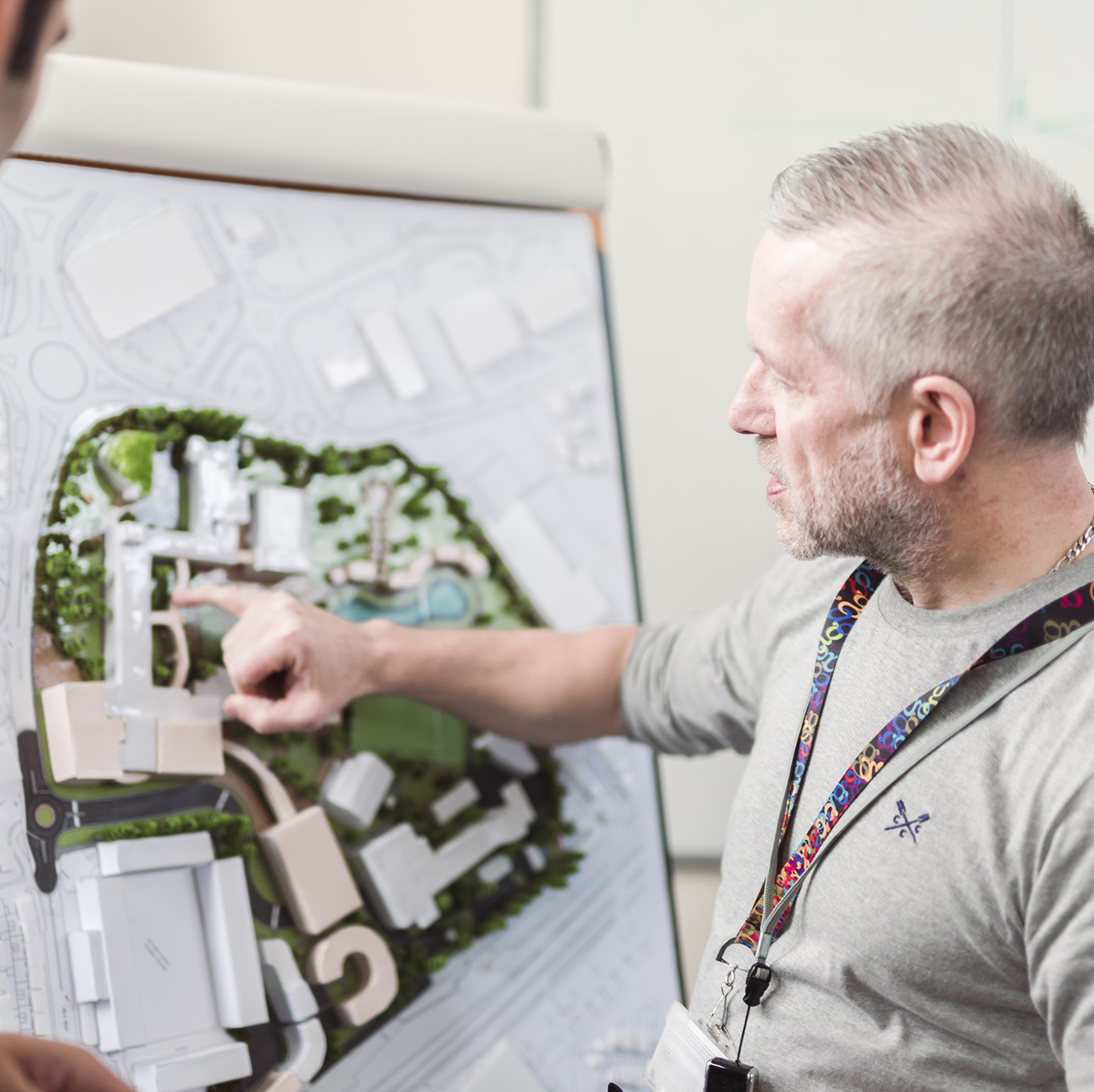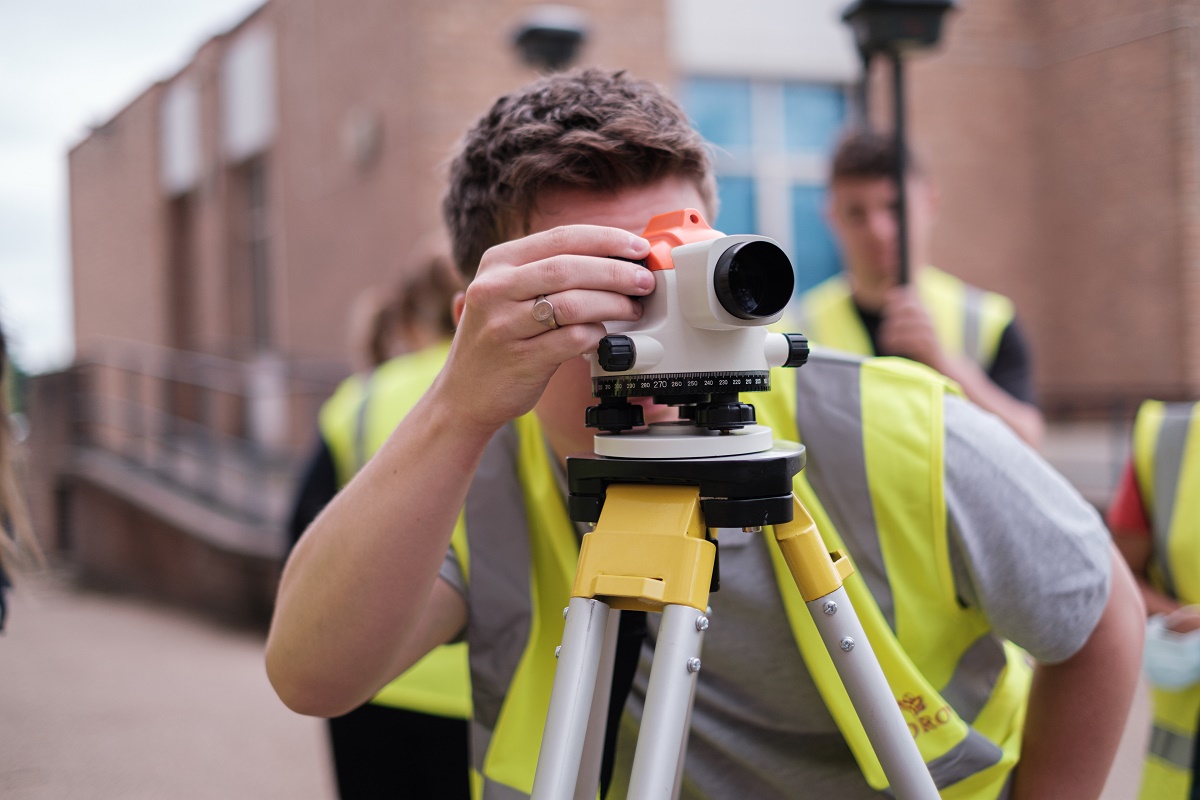BSc (Hons) Quantity Surveying

Course details
UCAS Code
QS24
Year of entry
2026
Duration
3 YRS (FT) 5 YRS (PT)
UCAS Tariff
96-112
Institution Code
G53
Location
Wrexham
Why choose this course?
This Quantity Surveying course prepares you for a career in one of the largest employment sectors in the United Kingdom. The construction industry requires a constant supply of quantity surveyors to measure, quantify and cost financial aspects associated with the design, construction, use and disposal of buildings and infrastructure.
This course:
- Sets you up for a career in Quantity Surveying which is part of one of the largest employment sectors in the United Kingdom.
- Will extend your knowledge and reinforce your understanding of how financial cost is measured, controlled, authorised and accounted for in the management of building and infrastructure projects.
- Equips you with knowledge of the financial management of heritage and refurbishment projects; often sensitive in nature because of historical or architectural significance, or the traditional quality of the existing fabric.
Key course features
- Opportunities to directly engage with industry through conferences, guest lectures and visits to live construction projects.
- Access to a wide-ranging industry-standard digital resources for use on- and off-campus.
- Lectures are delivered in consecutive blocks as far as possible, to ensure flexible study time away from University.
- A variety of teaching and learning methods are used to ensure that technical content is applied to typical building surveying scenarios.
- The Built Environment subject area is part of the Faculty of Art, Computing and Engineering (FACE) and therefore content benefits from association with arts, computing, engineering and renewable energy subject disciplines.
If you are employed within the construction sector and intend to study on a part-time basis, please contact the Programme Leader Dr Gareth Carr as funding might well be available through schemes administered by sector skills organisations.
What you will study
Year 1 (Level 4)
The first year of the Quantity Surveying course comprises seven core modules and one optional module that combine to provide an informed introduction to the financial management of building and infrastructure projects.
MODULES
- Quantity Surveying 1
- Digital Technologies in Drawing and Modelling
- Digital Technologies in Surveying
- Legal Principles, Compliance and Liability
- Science and Materials
- Construction Technology
- Professional Practice 1
- Architectural Design Technology 1*
- Building Surveying 1*
- Construction Management 1*
- Civil Engineering Design*
*One to be selected
Year 2 (Level 5)
The second year of the Programme builds upon the first through modules that explore important technical and procedural considerations in the practice of quantity surveying. Commercial Management considers the importance of financial management throughout the various phases of the development process including evaluating real property as a financial asset, and Procurement and Contract Practice addresses the ways in which building projects are commissioned and implemented towards completion and use.
MODULES
- Quantity Surveying 2
- Modern Methods of Construction
- Building Services
- Procurement and Contract Practice
- Commercial Management
- Professional Practice 2
Year 3 (Level 6)
- Project Management
- Design for Climate Resilience
- Individual Research Project
- Professional Practice 3
- Major Project
Part-time study will comprise combinations of these modules over a five year period, though a Higher National Certificate or Higher National Diploma in a construction-related subject may carry exemptions at Levels 4 and/or 5, subject to approval by the University.
The information listed in this section is an overview of the academic content of the programme that will take the form of either core or option modules. Modules are designated as core or option in accordance with professional body requirements and internal academic framework review, so may be subject to change.
Entry requirements & applying
To enrol on the BSc(Hons) Quantity Surveying programme, applicants will normally be expected to have previously achieved one of the following as a minimum:
- Successful completion of a Foundation Year at Level 3 in a discipline considered appropriate by the Programme Team; or
- 96-112 UCAS tariff points; or
- a BTEC National Certificate or Diploma; or
- membership of a construction-related professional body at a level deemed appropriate by the programme team.
Applications from candidates who do not satisfy the standard entry criteria identified above are welcome and will be expected to demonstrate through interview that they have the potential to succeed on the programme.
Candidates who are employed within the construction industry and have sufficient appropriate experience are also welcome, though diagnostic assessment prior to admission will be considered in order to measure academic capability, particularly in mathematics and English or Welsh.
International applicants whose existing qualifications are outlined by the National Academic Recognition and Information Centre (NARIC) as being equivalent to the relevant UK entry qualification are also welcome. All applicants whose first language is not English or Welsh will be expected to demonstrate English language proficiency; European applicants are able to provide this evidence in a number of ways (further details), including IELTS; International applicants require a UKVI Approved Secure English Language Test (SELT) (further details).
Teaching & Assessment
Modules are delivered using a variety of teaching and learning techniques, including traditional lectures, practical ‘hands-on’ activities, tutorials and group discussions, laboratory work, construction site-based observation and peer appraisal. The main priority is to ensure that you feel comfortable within the academic learning environment and feel able to contribute to the discussion of subject matter within any class, tutorial or other learning activity that forms part of their studies – teaching and learning is fundamentally a two-way process within which your opinion is vitally important.
A range of assessment methods are used within the programme to simulate the sorts of written, practical, visual and oral communication skills that are expected of quantity surveyors; written reports, the practical use of technical equipment, visual presentations, laboratory analyses, in-class tests, examinations, coursework and oral presentations are all important ways in which you can demonstrate your understanding. The types of assessment selected for each module have been chosen to best-suit the nature of the technical content in each subject, and collectively provide a range of opportunities for you to demonstrate your interest, enthusiasm and interpretation of content during their studies.
In terms of particular assessment needs, the University’s Inclusion Services department can provide appropriate guidance and support should any students require reasonable adjustments to be made to assessment processes because of a recognised prevailing disability, medical condition, or specific learning difference.
Career prospects
The BSc (Hons) Quantity Surveying degree provides a qualification that is recognised as a comprehensive, informed and valuable measure of the ability of the Wrexham University graduate in the financial management of building and infrastructure projects.
Opportunities for quantity surveyors exist within the construction industry in many varied contexts, from recent developments to heritage and refurbishment projects of all scales and types – developing a career as a quantity surveyor can therefore lead to many rewarding experiences, not least due to the fact that no two building projects are the same, and that quantity surveyors are likely to spend as much time on site as they are at their desks.
These circumstances mean that a career in quantity surveying can often be challenging, particularly rewarding, but never routine.
The BSc (Hons) Quantity Surveying qualification will therefore provide a sound basis upon which to develop a career in the professional and technical aspects of the financial management of development projects in a range of contexts.
Graduates of the programme can therefore work towards establishing themselves as quantity surveyors, building finance consultants and project managers, not least because of the experience and understanding gained whilst following the BSc (Hons) Quantity Surveying programme at Wrexham University.
Fees & funding
You do not have to pay your tuition fees upfront.
The fees you pay and the support available will depend on a number of different factors. Full information can be found on our fees & finance pages. You will also find information about what your fees include in the fee FAQs.
All fees are subject to any changes in government policy, view our undergraduate fees.
Accommodation
At Wrexham University, we offer on-campus en-suite rooms within our Wrexham Student Village. These private, fully furnished spaces are conveniently located, providing easy access to campus facilities, study areas, and social spaces. Plus, you’re just a 10-minute walk from the city centre!
With all bills included, free Wi-Fi, 24/7 security, and large social areas, you’ll find everything you need for a great student experience.
Explore our student accommodation options to find your perfect home away from home.
Upcoming Open Days.
Join us at an upcoming open day to meet your lecturers, find out more about our courses, discover our facilities and get a taste of student life.
Browse all of our open days & events.



